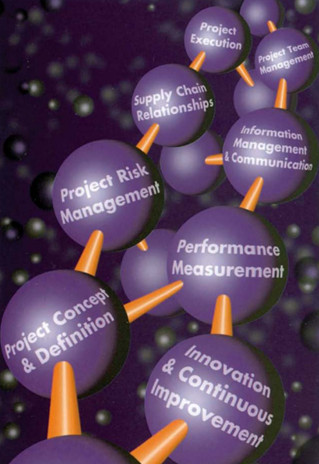On Tuesday 14th March, ECI and Constructing Excellence kicked off their series, Energy Transition Revolution- Powering the New Age of Project Delivery. This series aims to collaboratively explore, through participants own experiences, case studies and the latest thinking, how technologies can enhance project delivery and how to ensure success in each stage of the project. The work will be built on established principles and theory and will look at the eight ACTIVE Principles (Achieving Competitiveness Through Innovation & Value Enhancement), which remain relevant today.
John Fotherby chaired the meeting and begun by recognising that in current times we, as an industry, need to be ready to embrace new ways of working, react to different situations and deliver project with a higher level of competence and flexibility.
If construction continues to do things the way they’ve always been done, we’ll never achieve change or make true progress. In this respect, energy transition and Net Zero should incentivise improvement as we’ll need to adapt to meet targets.
The ACTIVE Principles outline and support the industry to execute project delivery. A their most basic, they are a set of common-sense principles that should be second nature within construction.

Luigi Anselmi, Tecnimont, spoke to the group about how the ACTIVE Principles, and therefore common sense, sometimes get forgotten in today’s world. The industry behaves as if everything is different now, due to covid, energy targets, socio-economic problems, however, the principles remain very much the same. We still need common sense and collaboration.
Effective Project Concept and Definition
This first ACTIVE principle is crucial as it sets the foundation for a project by providing direction, depth and meaning. The quality of information, at this stage, will define the quality of the project which is why it’s important to take the time to identify scope, boundaries and how it will be executed. Despite the changes in construction since the principles were established, this remains a key part of any project as any new methodology or technology will still need good project definition for full optimisation.
 There are challenges facing construction in using this principle, but these should be seen as opportunities to improve. For instance, some processes generate waste further along a project, however, scoping out the details effectively at the beginning allows for this to be recognised and avoided.
There are challenges facing construction in using this principle, but these should be seen as opportunities to improve. For instance, some processes generate waste further along a project, however, scoping out the details effectively at the beginning allows for this to be recognised and avoided.
Other areas that pose problems for the industry are skills shortages, lack of interoperability within technology and data and risk ownership/management. Some of these are longer term problems but others i.e. risk management can be handled more effectively by using the ACTIVE Principle, as will be discussed later in this series of work.

